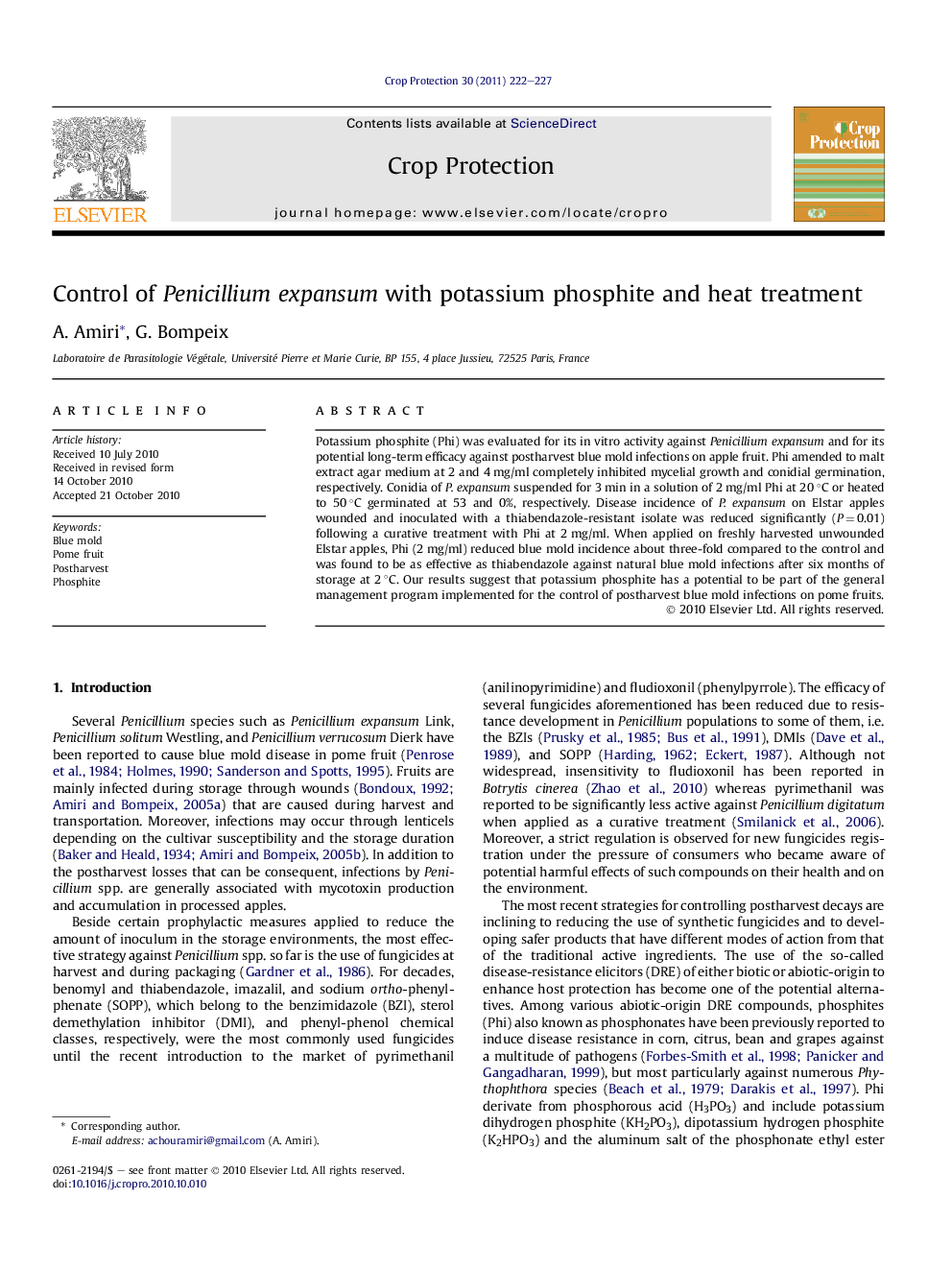| Article ID | Journal | Published Year | Pages | File Type |
|---|---|---|---|---|
| 4506660 | Crop Protection | 2011 | 6 Pages |
Potassium phosphite (Phi) was evaluated for its in vitro activity against Penicillium expansum and for its potential long-term efficacy against postharvest blue mold infections on apple fruit. Phi amended to malt extract agar medium at 2 and 4 mg/ml completely inhibited mycelial growth and conidial germination, respectively. Conidia of P. expansum suspended for 3 min in a solution of 2 mg/ml Phi at 20 °C or heated to 50 °C germinated at 53 and 0%, respectively. Disease incidence of P. expansum on Elstar apples wounded and inoculated with a thiabendazole-resistant isolate was reduced significantly (P = 0.01) following a curative treatment with Phi at 2 mg/ml. When applied on freshly harvested unwounded Elstar apples, Phi (2 mg/ml) reduced blue mold incidence about three-fold compared to the control and was found to be as effective as thiabendazole against natural blue mold infections after six months of storage at 2 °C. Our results suggest that potassium phosphite has a potential to be part of the general management program implemented for the control of postharvest blue mold infections on pome fruits.
Research highlights► This study reports the in vitro and in vivo efficacies of potassium phosphite (Phi) against Penicillium expansum, the causal agent of blue mold disease on pome fruit. ► Phi amended to malt extract agar medium at 2 and 4 mg/ml completely inhibited mycelial growth and conidial germination, respectively. ► Phi applied as a protective and curative treatment significantly reduced blue mold incidence in wounded and inoculated apple fruit. Blue mold incidence was significantly reduced in fruit treated for 3 min in a solution of Phi at 2 mg/ml heated to 50 °C after six months of storage at 2 °C. ► Consequently, Phi may be part of a general blue mold management program.
